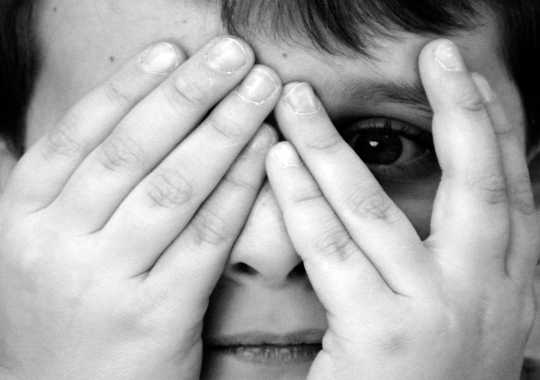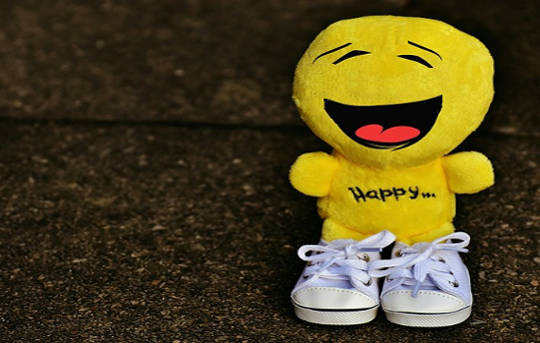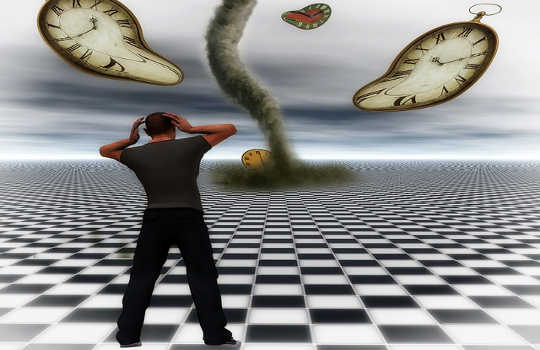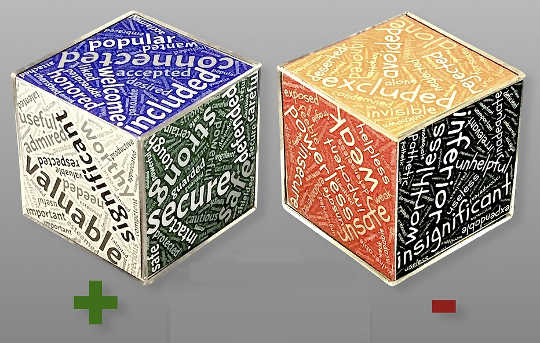- By Nadja Heym

Most people think they know what a psychopath is: someone who has no feelings. Someone who probably tortured animals for fun when they were little. But here are five things you probably didn’t know about psychopaths.
- By John Leach

The term give-up-itis was coined by medical officers during the Korean War (1950-1953). They described it as a condition where a person develops extreme apathy, gives up hope, relinquishes the will to live and dies, despite the lack of an obvious physical cause.

All of us have traumatic memories. Over the years we may become aware how they are affecting our lives in negative ways. Here’s a technique you can use on yourself to change your personal history by consciously healing memories with new thinking and imagination...
- By Bert Gambini
 Awe-inspiring experiences can have negative consequences as well as benefits, according to a new study. The study uses cardiovascular responses to stress to take a broad look at awe and the critical role perspective plays when considering the effects of encountering it.
Awe-inspiring experiences can have negative consequences as well as benefits, according to a new study. The study uses cardiovascular responses to stress to take a broad look at awe and the critical role perspective plays when considering the effects of encountering it.

One day, as I was answering a question on the subject of death, the following words came to me: "You are not afraid of death, you are afraid of life." Thinking over that response, I realized how true it was. Our fear of death is all the greater when we have not dared to live.

What is the next step? Where are we all going? We are witnessing ... and participating in ... great events, extraordinary events. Nothing less than a planetary transformation is taking place, right here and now. Nothing less than a revolution in consciousness is going on. This is a time of great awakening! Hallelujah!
- By Jane Wyker

We live in a culture that worships youth and beauty and often disregards, disrespects and diminishes age. This is a shame for many reasons, not the least of which is the fact that everyone is growing older every day. Don't be defined by it. Don't allow the culture to define you. Don't allow others to diminish you in any way. It's time to take back control of your life and...
 We all want other people to “get us” and appreciate us for who we really are. In striving to achieve such relationships, we typically assume that there is a “real me”. But how do we actually know who we are?
We all want other people to “get us” and appreciate us for who we really are. In striving to achieve such relationships, we typically assume that there is a “real me”. But how do we actually know who we are?
- By Jean Twenge

We’d all like to be a little happier. The problem is that much of what determines happiness is outside of our control. Some of us are genetically predisposed to see the world through rose-colored glasses, while others have a generally negative outlook. Bad things happen, to us and in the world. People can be unkind, and jobs can be tedious.

Connecting to the true Self gives me access to information and knowledge way beyond anything I have ever learned in a book or the limited amount stored in my memory. I know if I can tap into my true Self I will have access to all the information I need.

What happens if, instead of coming from fear of our own past, we initiate change from a state of quiet confidence that the changes we collectively wish to explore are being investigated to discover whether or not they might carry us to a HIGHER state of being than we are presently experiencing—even if there’s nothing significantly “wrong” with our present conditions.
- By Dan Millman

Human laws form a basis of social agreement and social order, but human laws are only pale reflections of a higher order of laws sewn into the fabric of existence. These laws govern the movement of the Earth, the cycle of seasons, the forces of nature, and the structure of the atom itself. The great laws existed before humanity, before nature.

More and more companies, government agencies, educational institutions and philanthropic organisations are today in the grip of a new phenomenon. I’ve termed it ‘metric fixation’. The key components of metric fixation are the belief that it is possible – and desirable – to replace professional judgment (acquired through personal experience and talent) with numerical indicators of comparative performance based upon standardised data (metrics); and that the best way to motivate people within these organisations is by attaching rewards and penalties to their measured performance.
- By Kim Eckart

On average, men pick up on visual motion significantly faster than women do, according to a new study. Humans’ ability to notice moving objects has always been a useful skill, good for avoiding an animal predator in ancient times and crossing a busy street in the modern world.

Vulnerability isn’t timidity or weakness. Rather, it’s an acknowledgment that we are sensitive, alive, and affected emotionally by our interactions and experiences. When we are open and accessible, we are able to connect with ourselves, and we make it much easier for others to connect with us.

Poor mental health among young people is on the rise in the UK, while access to support and treatment remains patchy. There is now a pressing need to build resilience in young people to minimise their risk of poor mental health later on, as our latest report argues. There are 12.5m young people in England, and one in ten will experience poor mental health. Half of all lifelong mental health problems start before the age of 14, but only one in four young people uses mental health services.
- By Matt Swayne

Seeing time tick down quickly on a countdown clock may give people more patience than seeing time pass slowly would. In a series of experiments, the speed of a countdown clock affected the patience and decision-making of video game players, both during and after the game, according to David Reitter, associate professor of information sciences and technology at Penn State.
- By Len Chetkin

As within, so without. Those four words compose one of the most powerful truths brought to mankind. What happens within is the determinant to what happens without. Carrying it one step further, in order to change our physical lives, we must look within for answers.

In addition to mapping human consciousness, the Seven Levels Model can also be used as a template to describe the stages of human psychological development. Figure 1 shows the stages of psychological development and their correspondence with the seven levels of consciousness.
- By Les Jensen

It can seem like our human narrative has lost its way. Where the everyday news is filled with stories of humanity struggling with itself. Our eyes can show us everything that we don't want. And the chances for hope can seem fleeting. But there is a much bigger story going on as well. And you are a player in that story too.

When we consciously choose what graces our environment, it will harmonize with our inner journey. Our home will be welcoming, restful, and intensely personal. Each book on the shelf, every painting on the wall, and even the decorations we use at Christmas will reflect who we are and what matters most...

New research may explain why some people—like sports stars—anticipate and react to fast-moving objects much quicker than others. When Serena Williams returns a lightning-quick tennis serve—most of us marvel at her skill and speed. Considering what the human brain overcomes to make it happen, these kinds of feats are nothing short of miraculous.

Once upon a time, the tribe of humanity embarked upon a long journey called Separation. It was not a blunder as some, seeing its ravages upon the planet, might think; nor was it a fall, nor an expression of some innate evil peculiar to the human species. It was a journey with a purpose: to experience the extremes of Separation, to develop the gifts that come in response to it, and to integrate all of that in a new Age of Reunion.
















